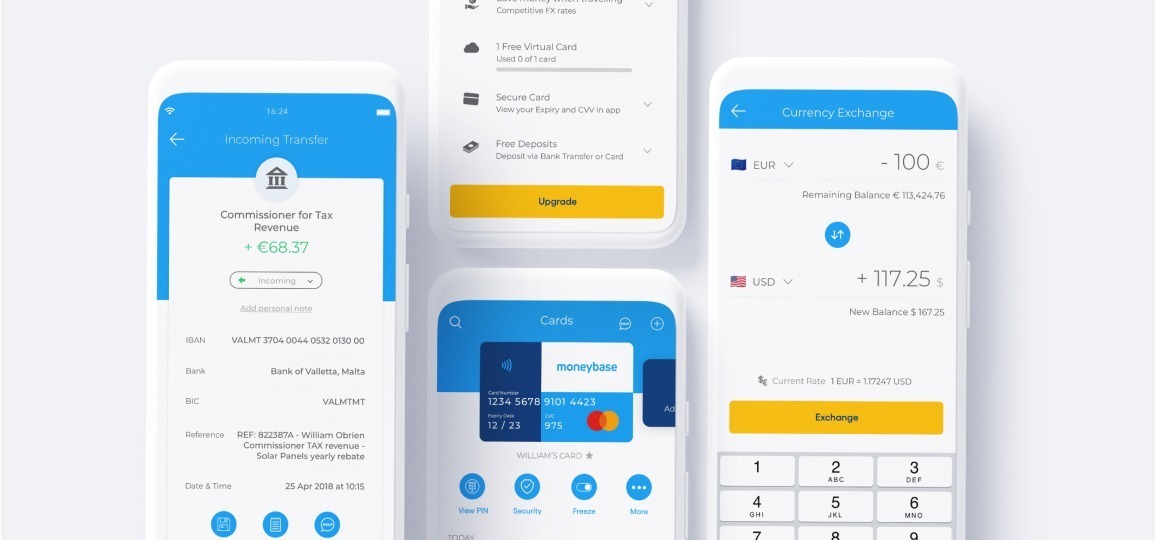The fintech space has been on fire over the past year, with consumer lenders in particular increasingly turning to cloud-based technologies and AI (artificial intelligence) to help power their services. And while most fintech companies compete with traditional banking institutions, one has set itself apart by choosing to collaborate with them instead on its next-generation service. A fast-growing firm in the lending market, Upstart has been on a roller-coaster ride, mostly up ever since it went public in 2020, continuing to disrupt the industry and challenging current application and approval methods that have been relatively unchanged for decades.
Since the start of 2021, Upstart’s stock has increased nearly 670% just before it reported third-quarter earnings, becoming one of the most frequently watched investments on social networks thanks to its flawless execution, its high growth rate and price fluctuations. With profitability so soon after going public and its ability to improve access to affordable credit while reducing risk and costs for its bank partners, Upstart has investors raving over it.

A brief history of Upstart
Upstart partners with banks to help them determine creditworthiness. By using AI algorithms that analyse over 1,000 variables which are directly and indirectly related to a specific applicant, the company tries to make more accurate loan decisions. Its credit-checking process has so far seen incredible success, multiplying the number of banks it serves, a clear indication that many are striving to move away from the more traditional FICO credit score.
However, things haven’t always been this way and for several years, the company flew under the Silicon Valley radar. Upstart began as a lender itself after being founded in 2012 by former Google executives Dave Girouard and Anna Counselman, along with data scientist Paul Gu. Initially it launched with an Income Share Agreement (ISA) product, whereby individuals could raise money by contracting to share a percent of their future income, however, by 2014 it moved into the personal loan marketplace, firstly offering a traditional 3-year loan and eventually a 5-year loan product. The company has originated $17.7 billion in loans as of September 30, 2021.
Eventually, it embarked on reimagining the lending and borrowing process for unsecured consumer loans by developing an income and default prediction model in order to determine a potential borrower’s creditworthiness. In addition to criteria like credit reports and income, as well as a FICO score, Upstart’s underwriting process takes into consideration elements such as educational variables, namely educational background, as well as work history. It then develops a statistical model that determines the borrower’s capacity to repay. According to the company, with its model, more than two-thirds of its loans are approved instantly, while they are fully automated.
Less than a decade since its inception, not only has Upstart built an AI-powered platform that has transacted thousands of personal loans, but it has since doubled the number of its bank partners, while it has ventured into auto loans, turned a profit and grown into a nearly 500-person organisation, spanning three offices.
When did Upstart go public?
In an attempt to capitalise on a wave of enthusiasm for the financial technology sector, Upstart went public in 2020 on the Nasdaq, pricing its IPO at $20 per share - at the low end of it range. However, on its market debut, the stock jumped 47% to $29.47, while its closing price valued the Silicon Valley company at $2.1 billion.
How much would an investment in Upstart be worth?
If we assume that you invested $10,000 in Upstart’s stock on January 8, 2021 when the stock was trading at $52.73, your holdings would have grown to approximately $39,489 on December 10, 2021 when the stock was trading at $160.75 per share.

Is Upstart a buy?
Back in March of 2020 when COVID-19 was spreading at an alarming rate across most of the U.S., consumers stayed locked in their homes and businesses large and small were laying off workers in an attempt to survive, the outlook of fintech lenders just like Upstart looked grim. Yet, the fintech company argued that by making use of alternative data and machine learning to assess risk, it could identify creditworthy borrowers with lower traditional scores. Its arguments proved to be fruitful as it held defaults in check and reached profitability, while it received praise from the CFPB (Consumer Financial Protection Bureau) for approving 27% more applicants than traditional models. What’s more, during 2020, it posted its first profitable year, with revenue climbing 44% in the first three quarters of 2020 from a year earlier to $146.7 million, while it generated net income of $5 million after losing $6.5 million in the first nine months of 2019. In the meantime, it joined Forbes’ Fintech 50 list of the most innovative companies.
In its latest earnings release back in November of 2021, the company reported total revenue of $228 million for the fiscal year’s third quarter, an increase of 250% from the third quarter of 2020, while adjusted EBITDA was $59.1 million, up from $15.5 million in the same quarter of the prior year. The company stated that since its IPO, it has managed to triple its revenue, profits, as well as the number of banks and credit unions on its platform, while it also tripled the number of auto dealerships it serves.
Apart from its impressive financials and its blazing public debut, those who went on to invest in the company early on have been rewarded handsomely when considering that the stock has more than sextupled since debuting on the public markets. Its current market cap stands at $9.01 billion as of January 19, 2022 and while the stock is currently down from its October 2021 highs, shares aren’t down due to poor performance. On the contrary, the company grew almost every part of its business and as a result, it has also attracted a growing number of mutual fund buyers, with that number rising from 51 to 136 funds by the second quarter of 2021.
What’s next for Upstart?
The company’s main focus for most of 2021 has been on auto loans, which it considers a space that offers huge opportunity for growth. According to Mordor Intelligence, the automotive-financing market size was valued at $232 billion in 2020 and the industry is expected to grow at a 6% compound annual growth rate (CAGR) to 2026, with the potential to be valued at $394 billion. Last year, the company unveiled an aggressive expansion into the car lending business, after acquiring Prodigy Software, a cloud-based provider of automotive retail software, which enabled Upstart to accelerate its effort to offer AI-enabled auto loans through thousands of dealers across the country. And when bearing in mind that U.S. consumers owe over $1.3 trillion on their vehicles, Upstart has quite a growth opportunity ahead of it. In the first quarter of 2021, it increased availability of its auto refinancing product from one U.S. state to 33, while it expanded its dealership footprint by 45%.
Considering its strong financials, impressive growth of its personal lending business and the promise of the automotive lending sector, it’s hard to ignore Upstart’s future ahead despite its recent price movements.
How to invest in Upstart Holdings (UPST) with Moneybase Invest
Ready to invest in Upstart Holdings (UPST)? Your first step to tapping into a world of investment opportunities with Moneybase Invest is to sign up and open an account.
To do so:
- Download the app from either Google Play or the Apple App Store. Alternatively, you may access Moneybase Invest on your desktop by visiting https://live.cctrader.com/
- Once you’ve onboarded successfully and have funded your account, head over to the search bar at the top of your screen and input either the stock name or ticker symbol.
- Select the instrument of your choice from the list and then click on the Buy button on the window located at the bottom of your screen.
- On the New Order page, input the number of shares you would like to purchase and hit the Place Buy Order. The stock has been added to your portfolio.
Access over 20,000 Stocks, ETFs, Bonds & Funds and over 4,300 fractional US shares and ETFs on our award-winning platform, with no hidden fees and instant market execution.
Moneybase Invest is brought to you by Calamatta Cuschieri Investment Services Ltd and is licensed to conduct investment services business by the MFSA under the Investment Services Act.
Moneybase Invest offers direct market access and speed of execution and is intended for knowledgeable and experienced individuals taking their own investment decisions. The value of investments may go up and down and currency fluctuations may also affect investment performance.
The contents of this article are not intended to be taken as a personal recommendation to invest but strictly based on research and for information purposes only. Retail investors should contact their financial adviser for a suitability assessment prior to taking any investment decisions.





